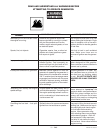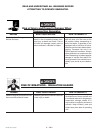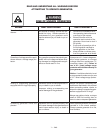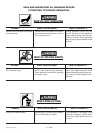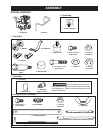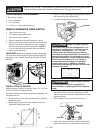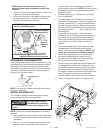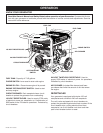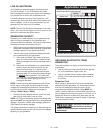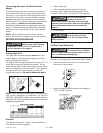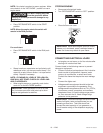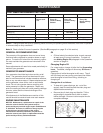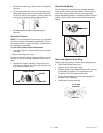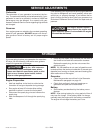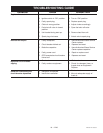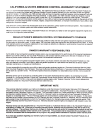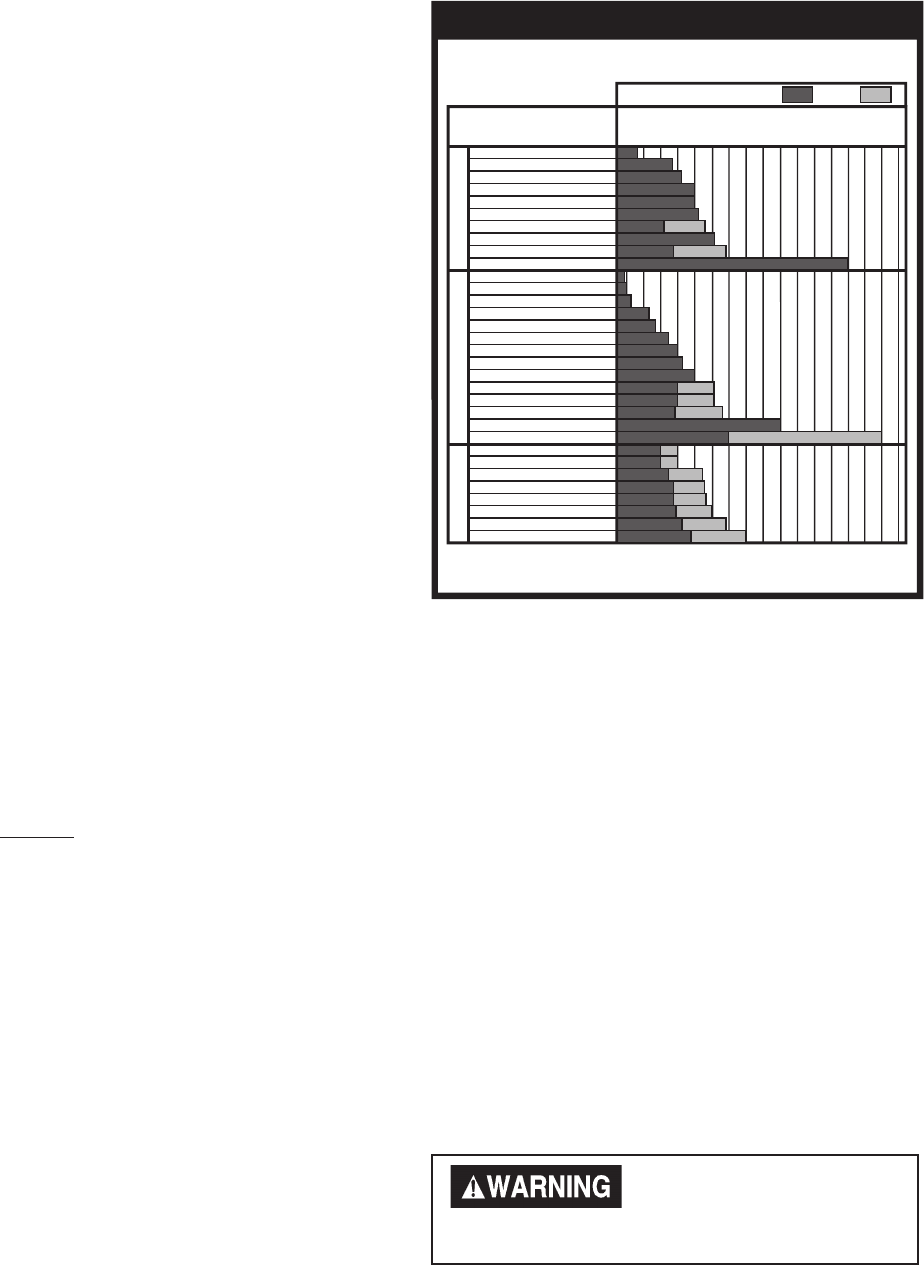
13 — ENG
D20498 Rev. 0 6/9/00
OBTAINING ELECTRICITY FROM
GENERATOR
There are basically two ways to obtain electricity form
a generator:
• Use of extension cords directly from the genera-
tor to the appliance, lights, tools, etc.
• Use of a double-throw transfer switch installed
directly to the main electrical supply outside of
the house.
Extension Cord
When using an appliance or tool at a considerable
distance from the generator, a 3-wire extension cord
that has a 3-blade grounding plug and a 3-slot
receptacle that accepts the tool's plug MUST be
used in order to reduce the risk of electrical shock. A
cord of adequate size must be used. A minimum of 12
gauge wire size with at least a 20 amp draw can be
used. When amperage exceeds 20 amps a 10 gauge
wire size should be used.
The wattage ratings shown are averages. Wattage requirements may vary
with different brands of appliances and tools.
Application Guide
To select the right generator for your needs, total the wattage
of the items to be run at the same time.
Run
Common Uses
Wattage
Kitchen
Tools
100
250
500
1000
1500
2000
2500
3000
3500
4000
4500
5000
5500
6000
6500
7000
7500
Start
Household
Slow Cooker
Microwave
Toaster
Hot Plate
Electric Skillet
Coffee Maker
Small Refrigerator
Range, single 8" element
Refrigerator/Freezer
Oven
Jig Saw
Reciprocating Saw
Airless Sprayer 3/4HP
Hand Drill 3/8"
Router
Belt or Disk Sander
Light Bulb
Home Security
Radio
Television
Electric Blanket
Computer
Hair Dryer
Iron
Space Heater
Well Pump 1/2HP
Sump Pump 1/2HP
Furnace Fan 1/3HP
Water Heater
Air Conditioner (12,000 BTU)
Circular Saw 7 1/4"
Bench Grinder 6"
An extension cord that is hot
to the touch is overloaded.
Repair or replace damaged extension cords
immediately.
LOW OIL SHUTDOWN
Your Craftsman generator engine is equipped with
Low Oil Shutdown. Low Oil Shutdown is a safety
device designed to protect your engine from damage
in the event the oil level in the crankcase is low.
If while the engine is running, the oil gets low, it will
automatically shut itself down and will not restart until
the oil is added. If the oil is low before start-up, the
generator will not start until oil is added.
NOTE: The Low Oil Shutdown mechanism is very sen-
sitive. You must fill the engine to the full mark on the
dipstick to inactivate this safety device.
GENERATOR CAPACITY
Exceeding the rated capacity of your generator can
result in serious damage to your generator and
connected electrical devices. You should observe the
following to prevent overloading the unit:
• Starting and running wattage requirements should
always be calculated when matching a generators
wattage capacity to the appliance or tool.
• There are two types of electrical appliances that
can be powered by your generator:
A. Items such as radios, light bulbs, television
sets, and microwaves have a "resistive load".
Starting wattage and running wattage are the
same.
B. Items such as refrigerators, air compressors,
washer, dryer, and hand tools that use an
electrical motor have an "inductive load".
Inductive load appliances and tools require
approximately 2 to 4 times the listed wattage
for starting the equipment. This initial load
only lasts for a few seconds on start-up but is
very important when figuring your total
wattage to be used.
NOTE: Some inductive appliances and tools will list
on the motor name plate, the starting and running
voltage and amperage requirements. Use the follow-
ing formula to convert voltage and amperage to
wattage: (Volts X Amp = Watts)
• Always start your largest electric motor first, and
then plug in other items, one at a time.
NOTE: On 120-volt loads the maximum starting watt-
age should NOT exceed one half of the rated generator
wattage. Example: a 5000 rated wattage generator =
2500 maximum starting wattage.
The guide is provided to assist you in determining the
appliances and tools that can be ran with the wattage
capacity of your generator.



